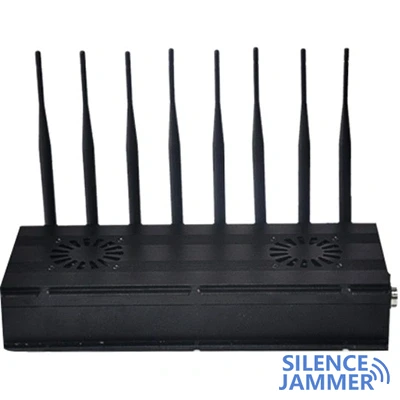Global Positioning System (GPS) is an indispensable technology in modern life and is widely used in navigation, traffic management, military, scientific research and other fields. However, GPS signals are susceptible to various interferences during transmission, affecting their accuracy and reliability. This article will analyze the causes and types of GPS signal interference and discuss corresponding countermeasures.

Causes of GPS signal interference
- Natural interference
- Atmospheric interference: During the transmission process, GPS signals need to pass through the ionosphere and troposphere. The atmospheric conditions in these layers will affect the propagation speed and path of the signal, leading to positioning errors.
- Solar activity: Solar storms and other activities will produce strong electromagnetic interference, affecting the transmission quality of GPS signals.
- Terrain obstacles: Terrain obstacles such as mountains and buildings will reflect or block the GPS signal, causing signal attenuation or distortion.
- Human interference
- Interference from electronic equipment: Some electronic equipment, such as radio transmitters, mobile phones, microwave ovens, GPS signal jammer etc., can produce electromagnetic interference and affect GPS signal reception.
- Malicious interference: Using GPS jammers or spoofing devices to deliberately emit interference signals or fake GPS signals to prevent the receiving device from accurately positioning.
GPS signal interference can be divided into two categories: natural interference and man-made interference.

Types of GPS signal interference
Unintentional interference
Unintentional interference mainly comes from electromagnetic wave radiation from other electronic equipment. This interference is usually random and intermittent and has little impact on the GPS signal, but in certain environments (such as areas with high density of electronic equipment) it may significantly affect the GPS reception.
Deliberate interference
Intentional interference includes the use of GPS jammers and spoofers. This interference is targeted and intense and may cause the GPS signal to completely fail or receive incorrect location information, seriously affecting the normal operation of systems and devices that rely on GPS.
Countermeasures
Improve the anti-interference ability of the receiver
Modern GPS receivers can improve their immunity to interference through the following techniques:
- Multi-band reception: Receive GPS signals from multiple frequency bands at the same time to reduce the impact of single-frequency band interference on positioning.
- Anti-interference filter: Use advanced signal processing technology to filter out interference signals and retain useful GPS signals.
- Signal strength monitoring: Real-time monitoring of the strength and quality of received signals, identifying and eliminating abnormal signals.
Use an alternate navigation system
In order to still ensure navigation and positioning functions when the GPS signal is interfered, the following backup systems can be used:
- Inertial Navigation System (INS): Measures motion information through accelerometers and gyroscopes to perform positioning independently of external signals.
- Multi-mode satellite navigation system: Use other satellite navigation systems (such as GLONASS, Beidou, Galileo) at the same time to improve positioning reliability.
Strengthen interference monitoring and management
Establish a comprehensive interference monitoring and management mechanism to promptly detect and deal with GPS signal interference:
- Interference detection equipment: Install interference detection equipment in key areas to monitor the electromagnetic environment in real time and discover interference sources.
- Supervision of laws and regulations: Develop and implement strict laws and regulations to prohibit the illegal use of GPS interference equipment and protect the legitimate use of GPS signals.

Develop anti-interference technology
Continuously develop and apply new technologies to improve the overall anti-interference ability of the GPS system:
- Adaptive antenna: Reduce the reception of interference signals by intelligently adjusting the antenna reception direction.
- Signal encryption and authentication: Encrypt and authenticate GPS signals to prevent spoofing attacks.
Increase public awareness
Through publicity and education, we can improve the public's understanding and prevention awareness of GPS interference and reduce the occurrence of unintentional interference.
GPS signal interference is a complex problem, with both natural and human factors. Facing the increasingly serious interference threat, comprehensive measures need to be taken, including improving the anti-interference capability of receivers, using backup navigation systems, strengthening interference monitoring and management, developing anti-interference technology, and enhancing public awareness. Through multi-party efforts, the impact of GPS signal interference can be effectively reduced and the reliability and safety of navigation and positioning systems can be ensured.



